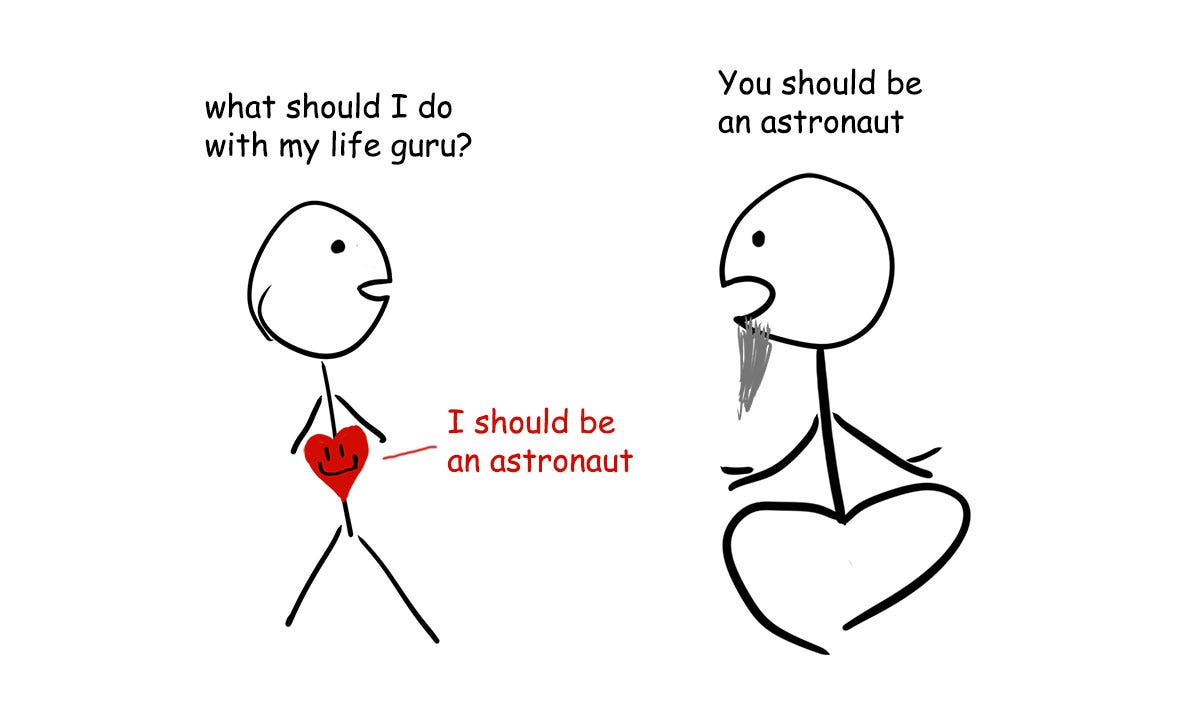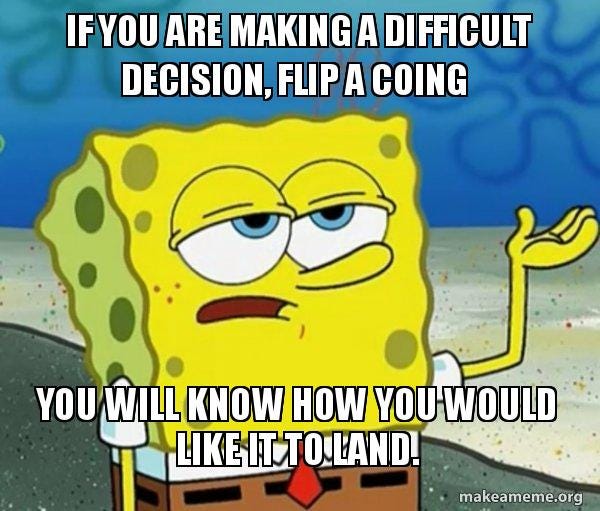Follow the Data or Your Gut?
Research shows that the more complex the problem, the more you should let your unconscious decide.
How do you make tough decisions? Do you deliberately weigh out every factor and try to be as rational as possible, or do you tend to make quick judgement and go with your intuition?
Ever since the advancement in psychology and neuroscience which has uncovered how irrational we are, with all of our heuristics and cognitive biases, it has became the mainstream ideology that our rational brain should dictate what we do. We should rely on reason, data, and analytics to make decisions, rather than giving into the emotional, impulsive self and trusting your instincts. When you’re undecided between which job offer to take, which apartment to rent, or even which person to date, the wise advice is to you’re often told to perform rigorous analysis of the data and systematically go through all the steps of logical reasoning — create decision trees, list out the pro’s and con’s, or use complex models that are widely available online that will make calculate the decision for you.
But a pair of Dutch researchers have found that the more complex the problem, the more you should let your unconscious decide1. This is called the “theory of unconscious thought”. The conscious mind, they explained, is limited by how much it can hold, and gets overwhelmed when a problem becomes too much to handle. At that point, we tend to make a decision that is swept along by some cognitive biases, then use our left-brain interpreter to rationalize the judgment. These researchers have found that when the decision is relatively simple, such as choosing an Ikea furniture, conscious and deliberate thought indeed produced better results. But when it comes to choosing between houses or cars, the lack of attentive deliberation produced more favourable results.
From the neuroscience perspective, this might be related to the function of our insular cortex, or insula, the region of the brain that receives sensory inputs from all modalities (e.g., smell, touch, taste). It is responsible for our reaction of disgust, social responses, and intuitive decision making, including that gut feeling2. You might have guessed this already, the gut and brain actually interface at the insula, where the gut feelings, emotional thoughts, and bodily sensations collide to create our perception of the present moment. When walking down a dark street in a sketchy neighborhood at night, your rational brain might try to convince you that you’re safe, but your insula will produce that uneasy feeling in your gut that will make you stick to a well-lit road. This decision is often the better one (from survival perspective at least) when the environment lacks clear signals.
So the next time that you’re choosing between apartments to rent, the best thing to do might be to consciously consider the data, but then defer making a decision for a while. While you’re not thinking about it, your unconscious mind, which can hold far more complexity, is mulling over the data. At some point, you’ll begin to get a feeling that a particular decision is the right one. That’s when it’s a good idea to “trust yourself”.
Dijksterhuis, Ap & Bos, Maarten & Nordgren, Loran & Baaren, Rick. (2006). On Making the Right Choice: The Deliberation-Without-Attention Effect. Science (New York, N.Y.). 311. 1005-7. 10.1126/science.1121629.
Mayer E. A. (2011). Gut feelings: the emerging biology of gut-brain communication. Nature reviews. Neuroscience, 12(8), 453–466. https://doi.org/10.1038/nrn3071
Favourites of the Week:
Read: Started The Web of Meaning by Jeremy Lent: a book that questions the mainstream worldview, our sense of meaning, and offers an alternative that draws on Taoism and Confucian philosophies.
Listened: Jeremy Lent on the Web of Meaning on the Jim Rutt Show — this interview was so fascinating that I went and bought the book ☝️ on the same day.







Interesting point. I guess overthinking could easily overwhelm us, and lead to analysis paralysis or irrational decisions. But meanwhile, based on my "gut feelings", this theory of unconscious thought is also biased. So should I trust my gut feelings n ignore the research?